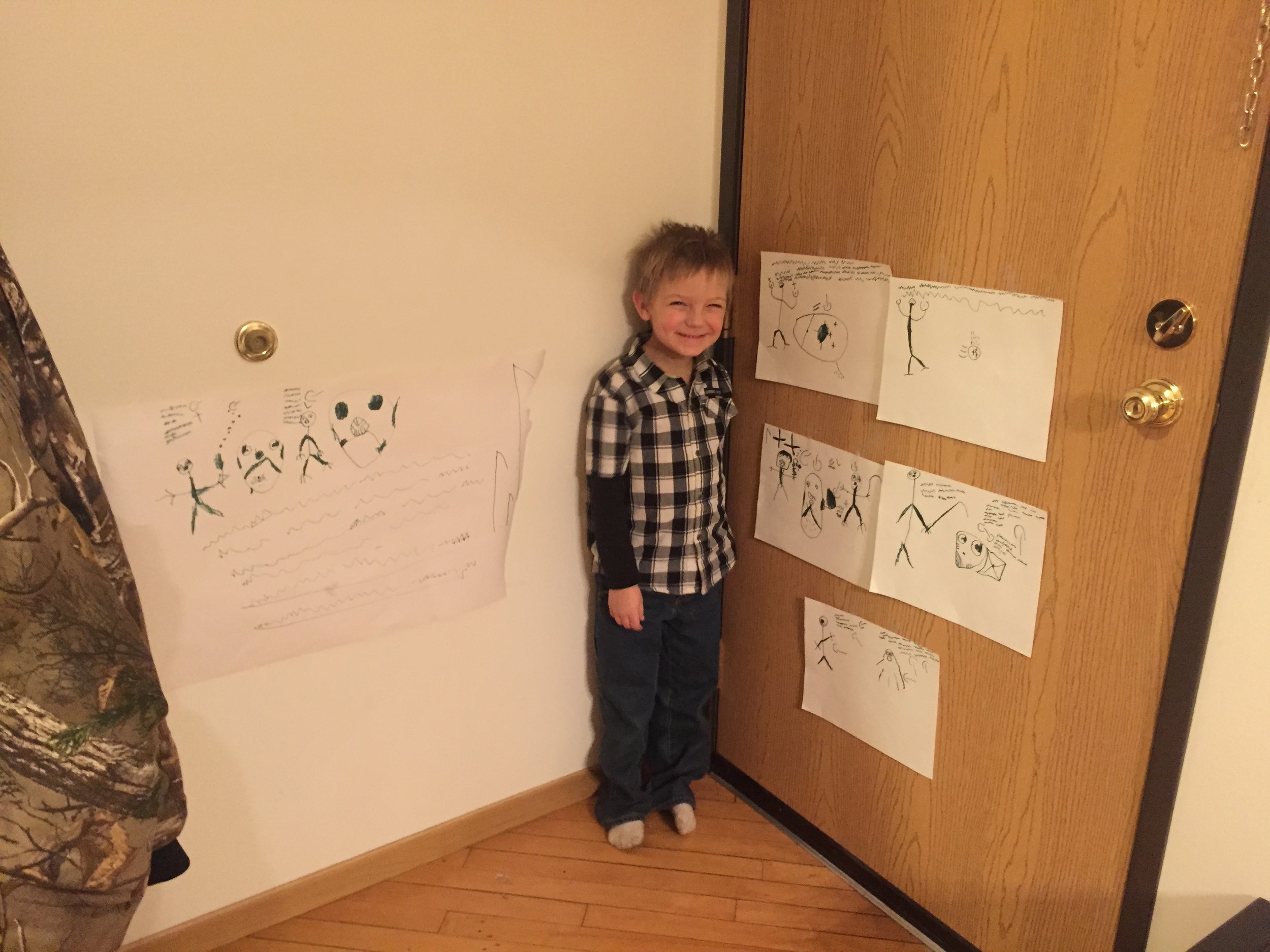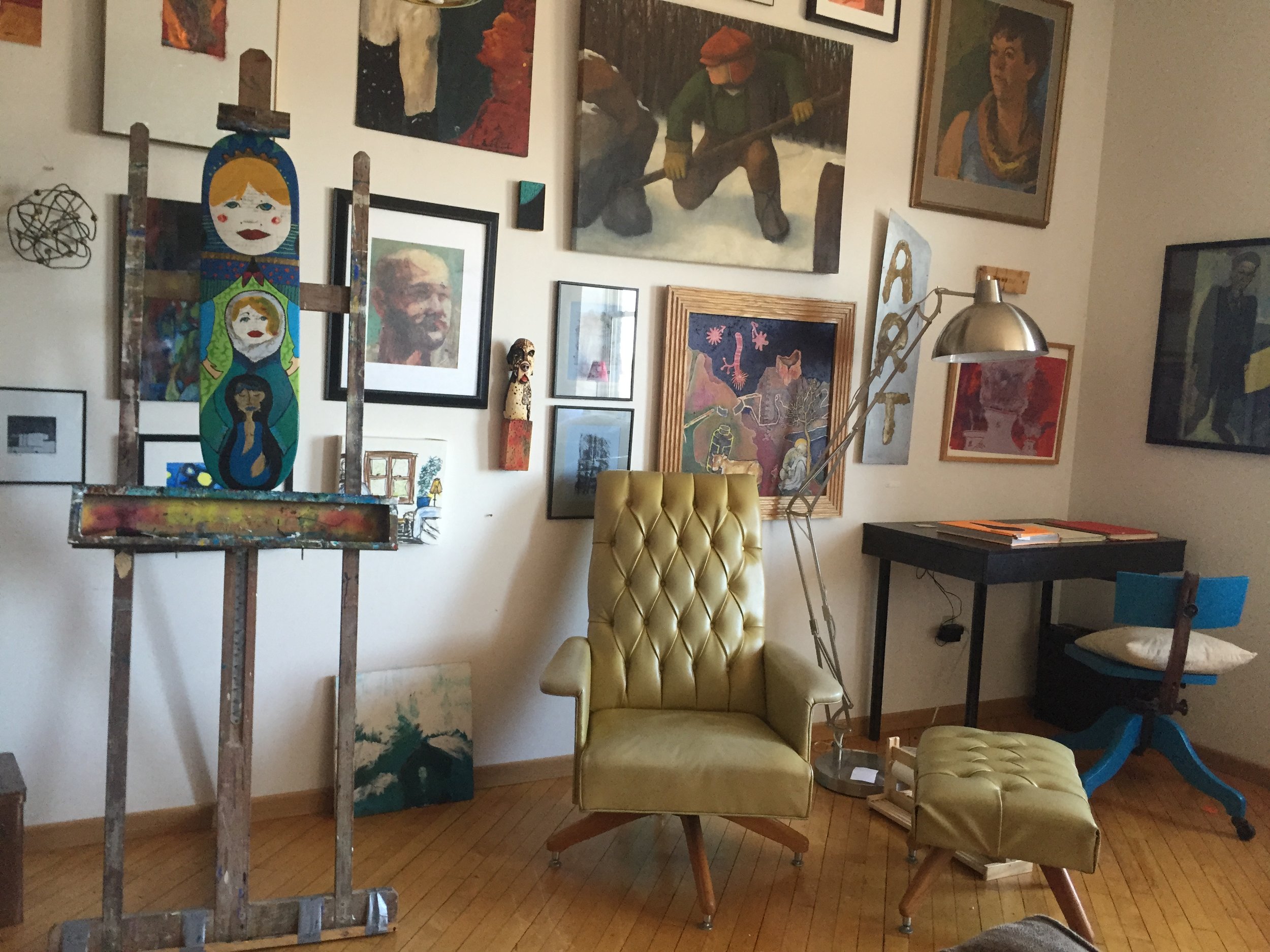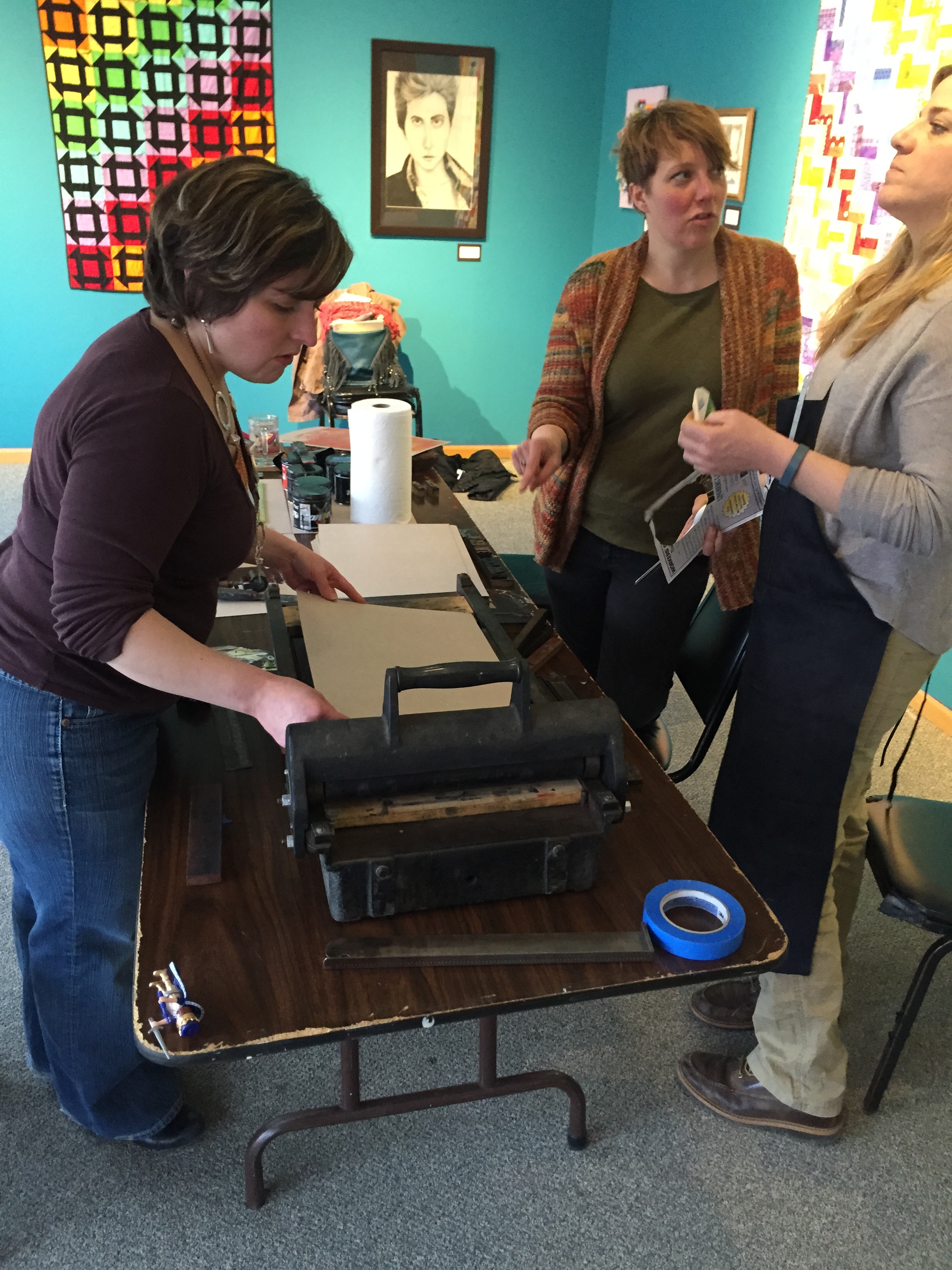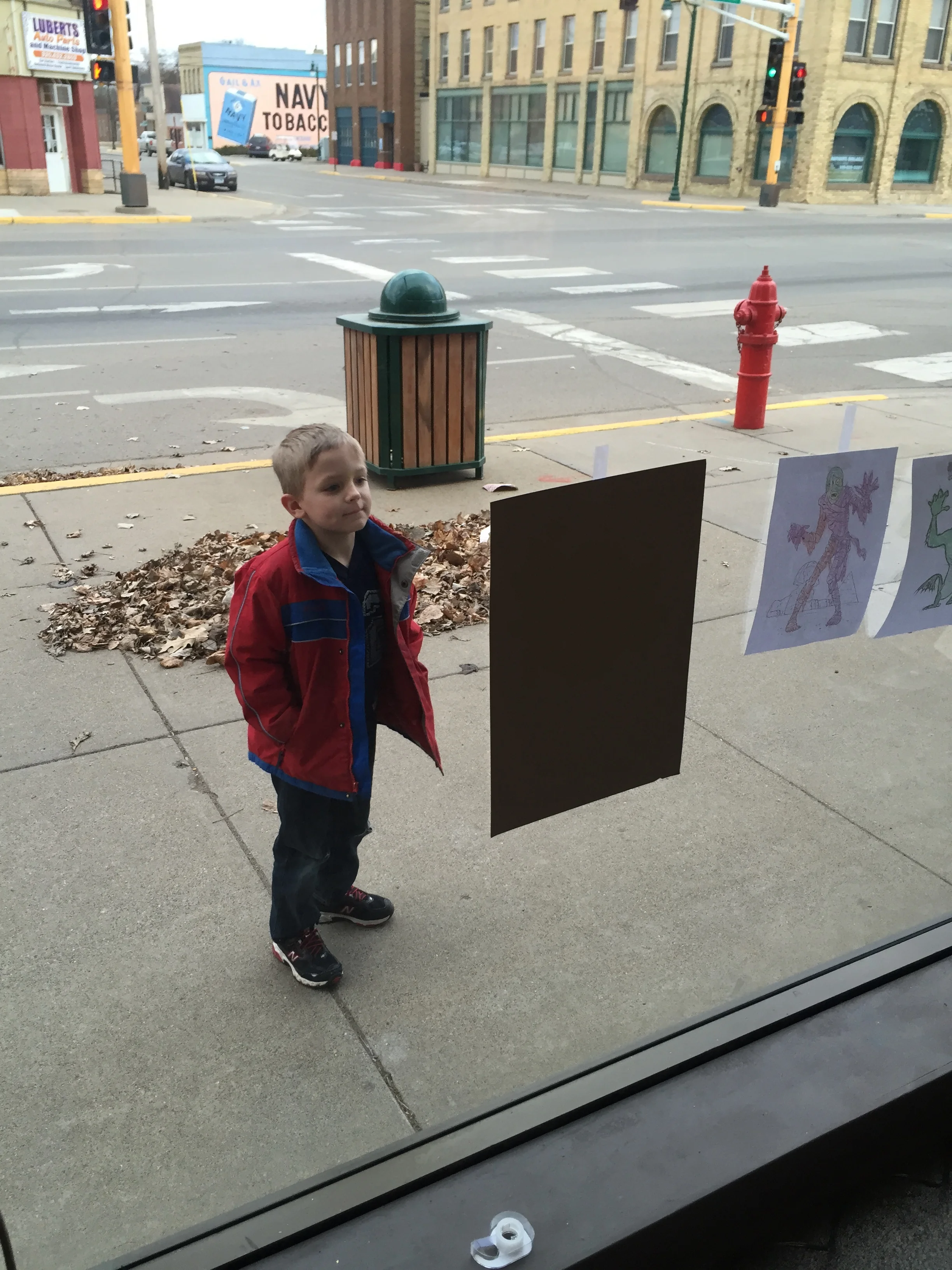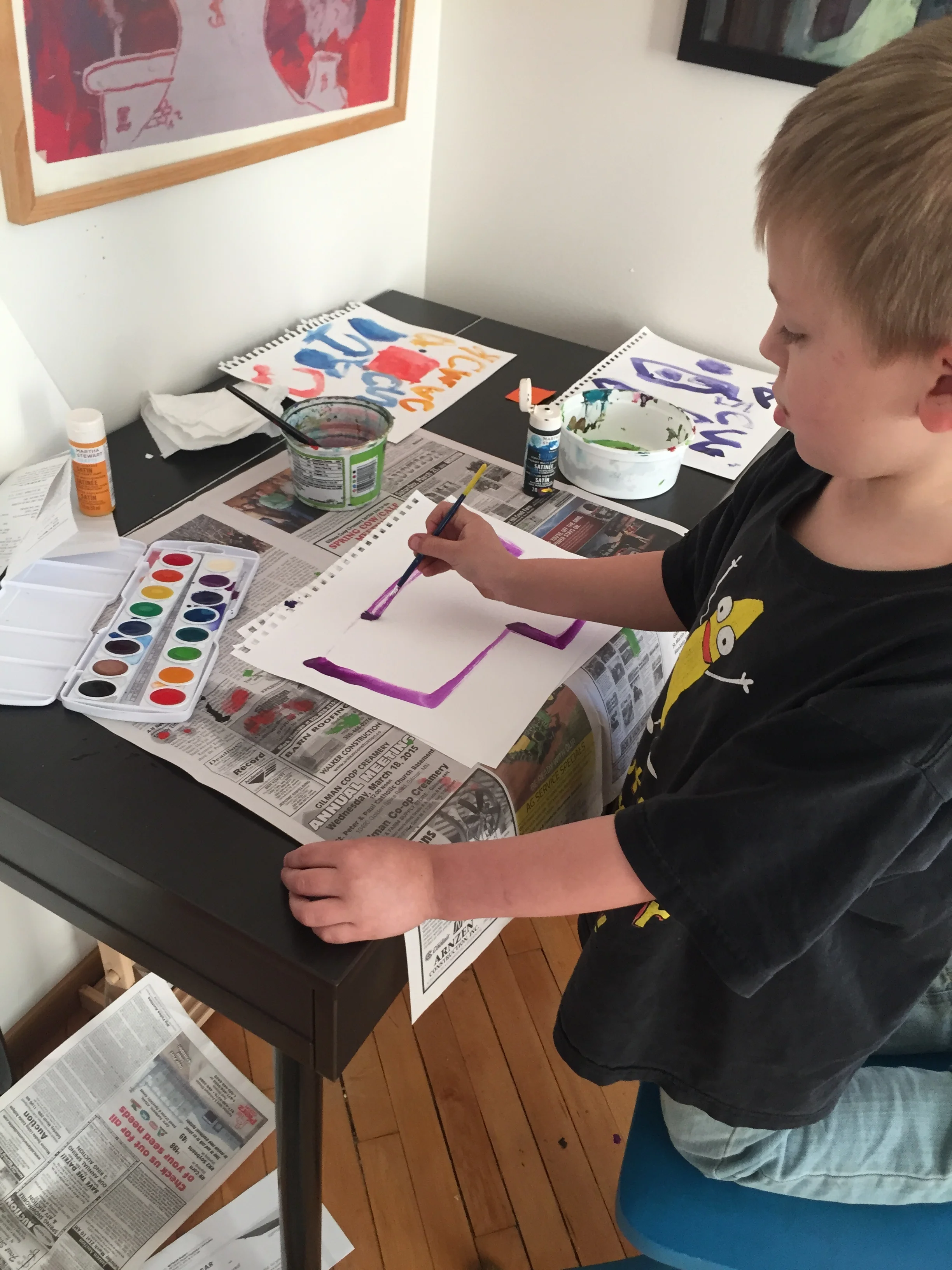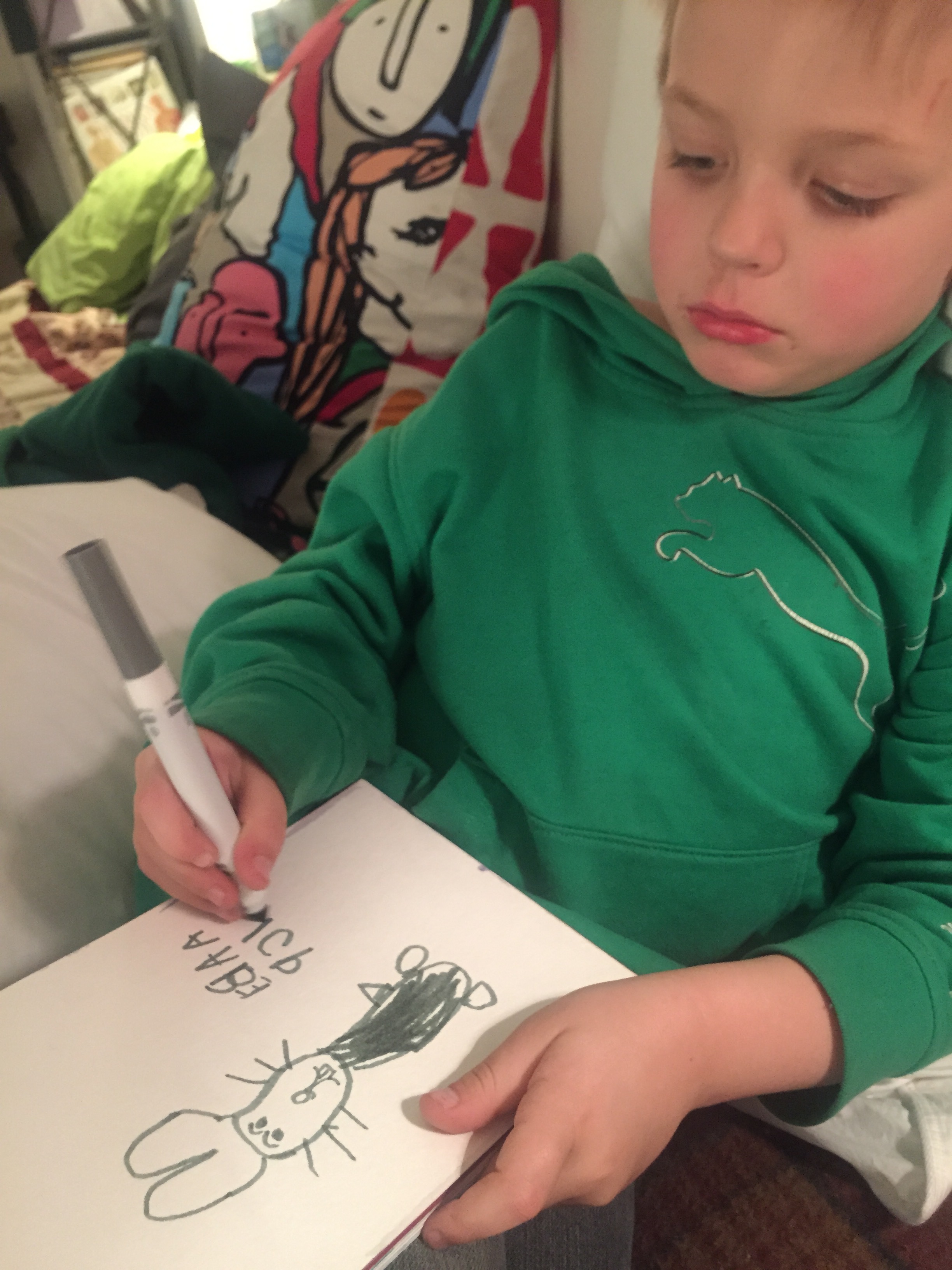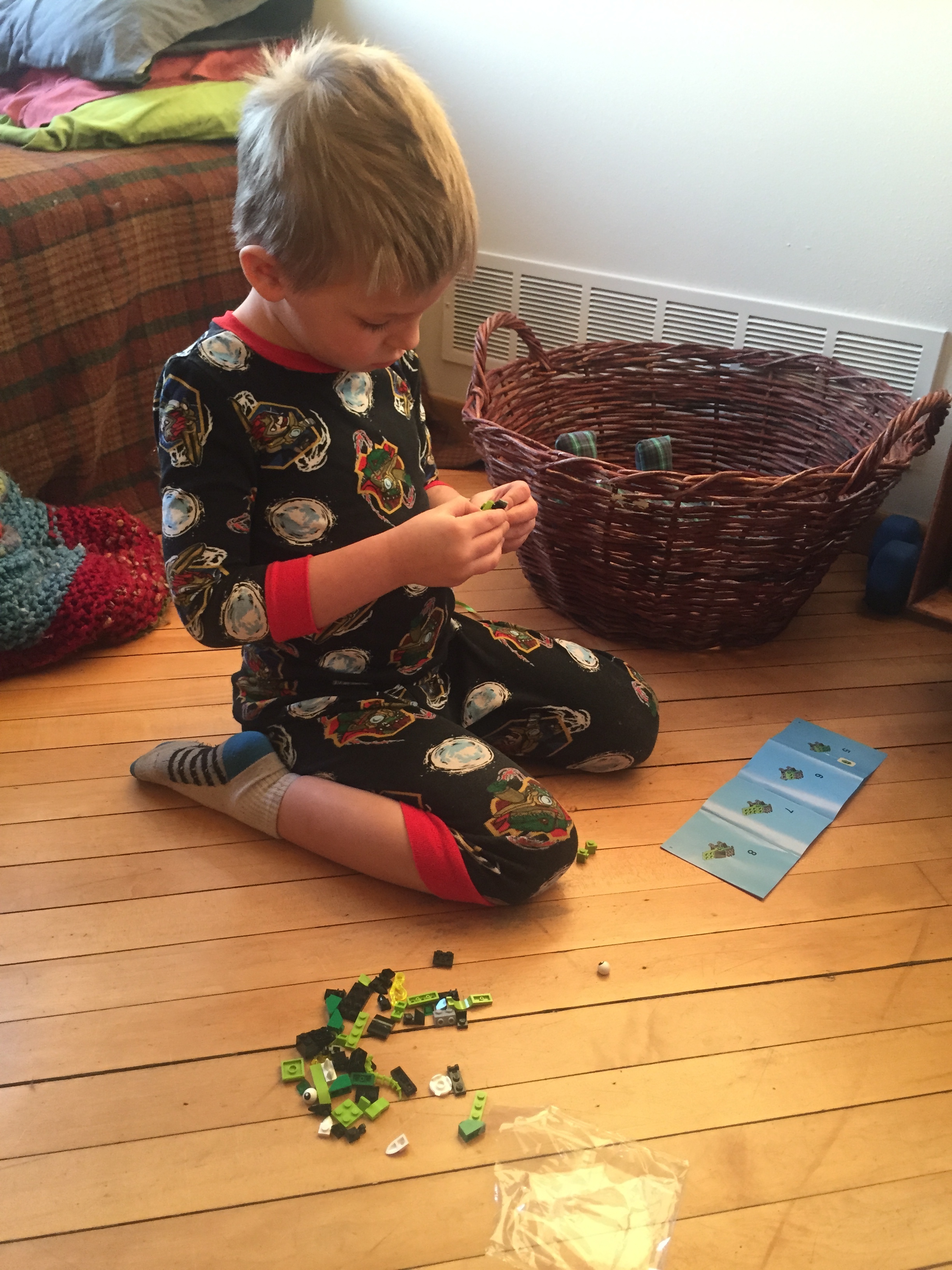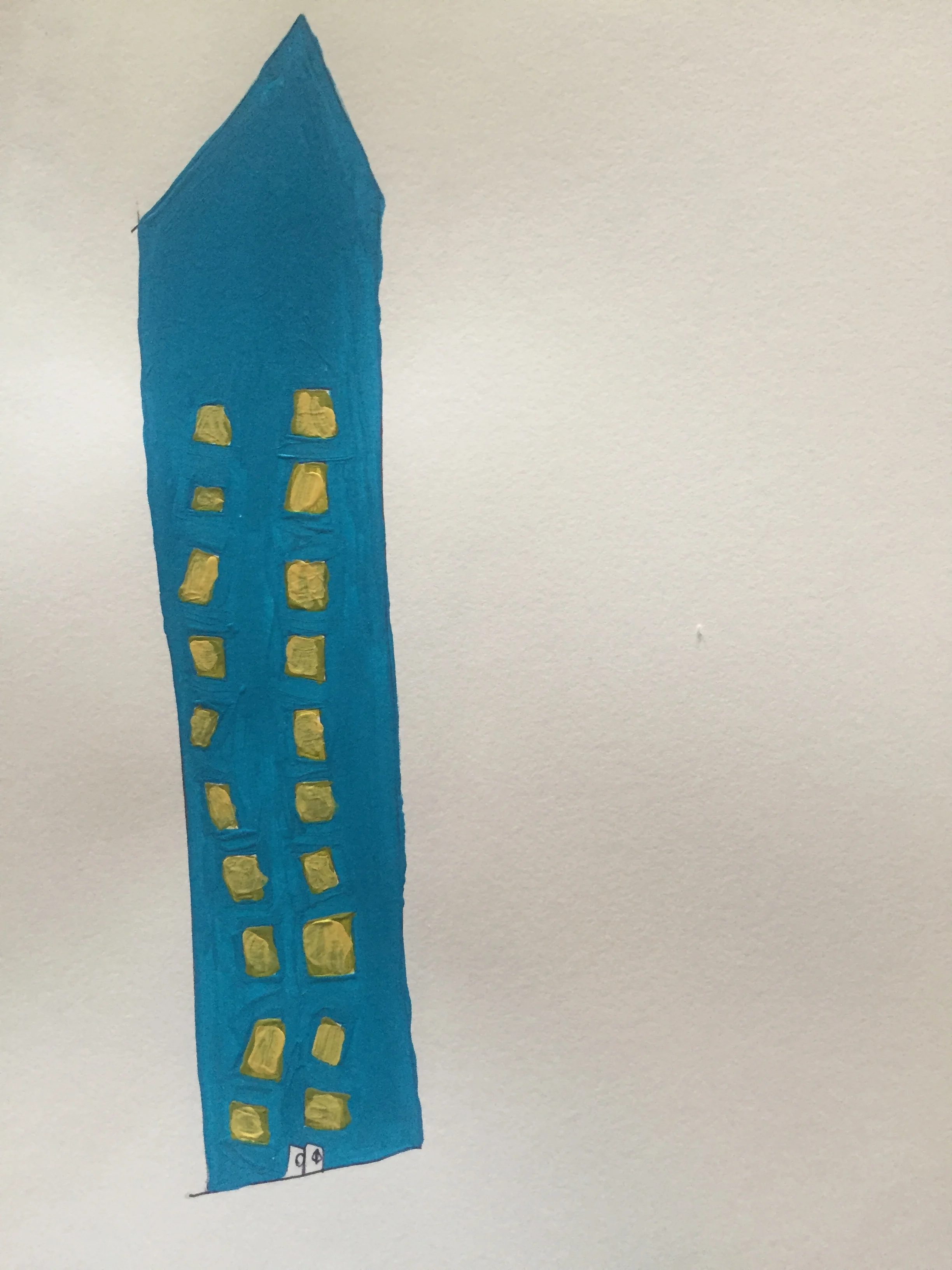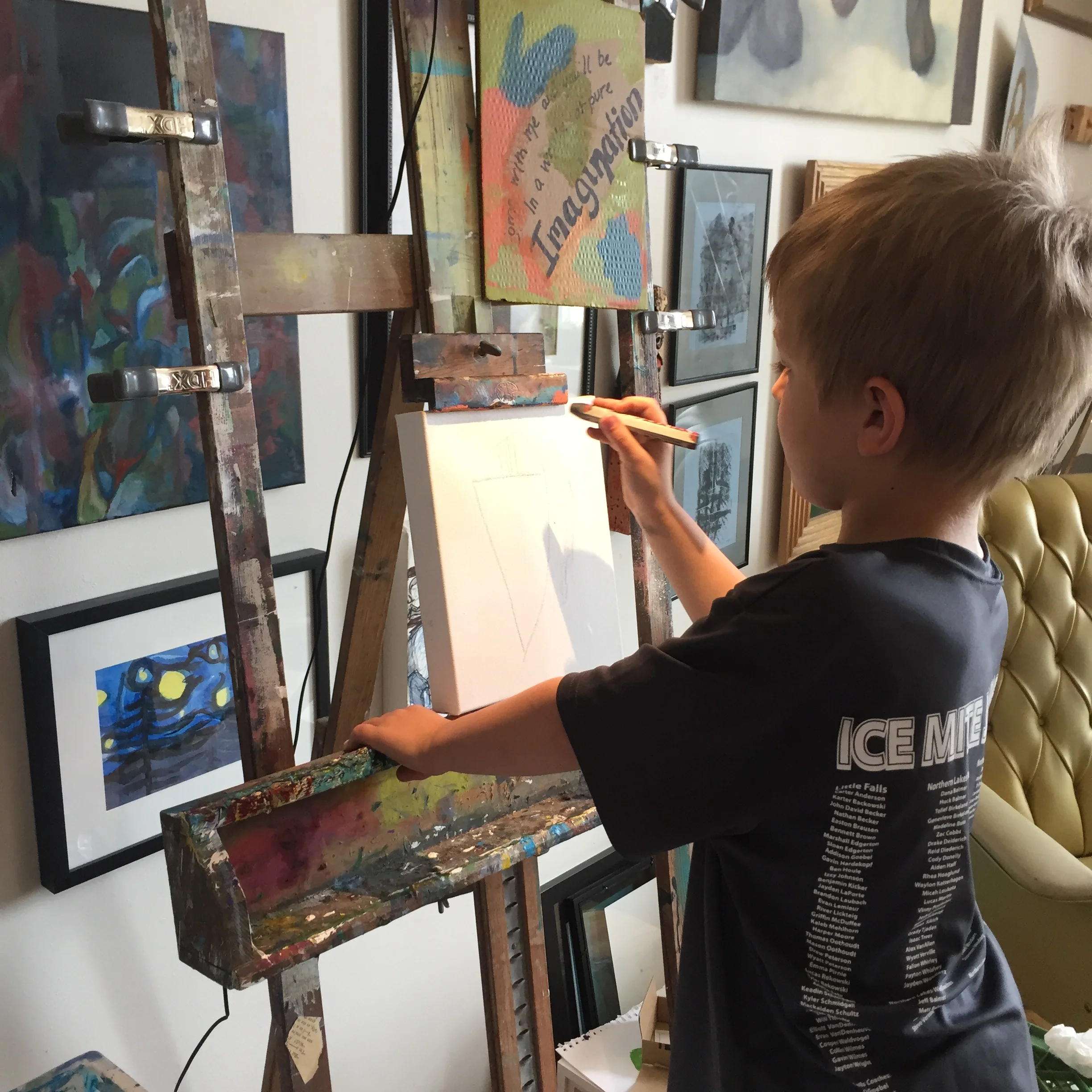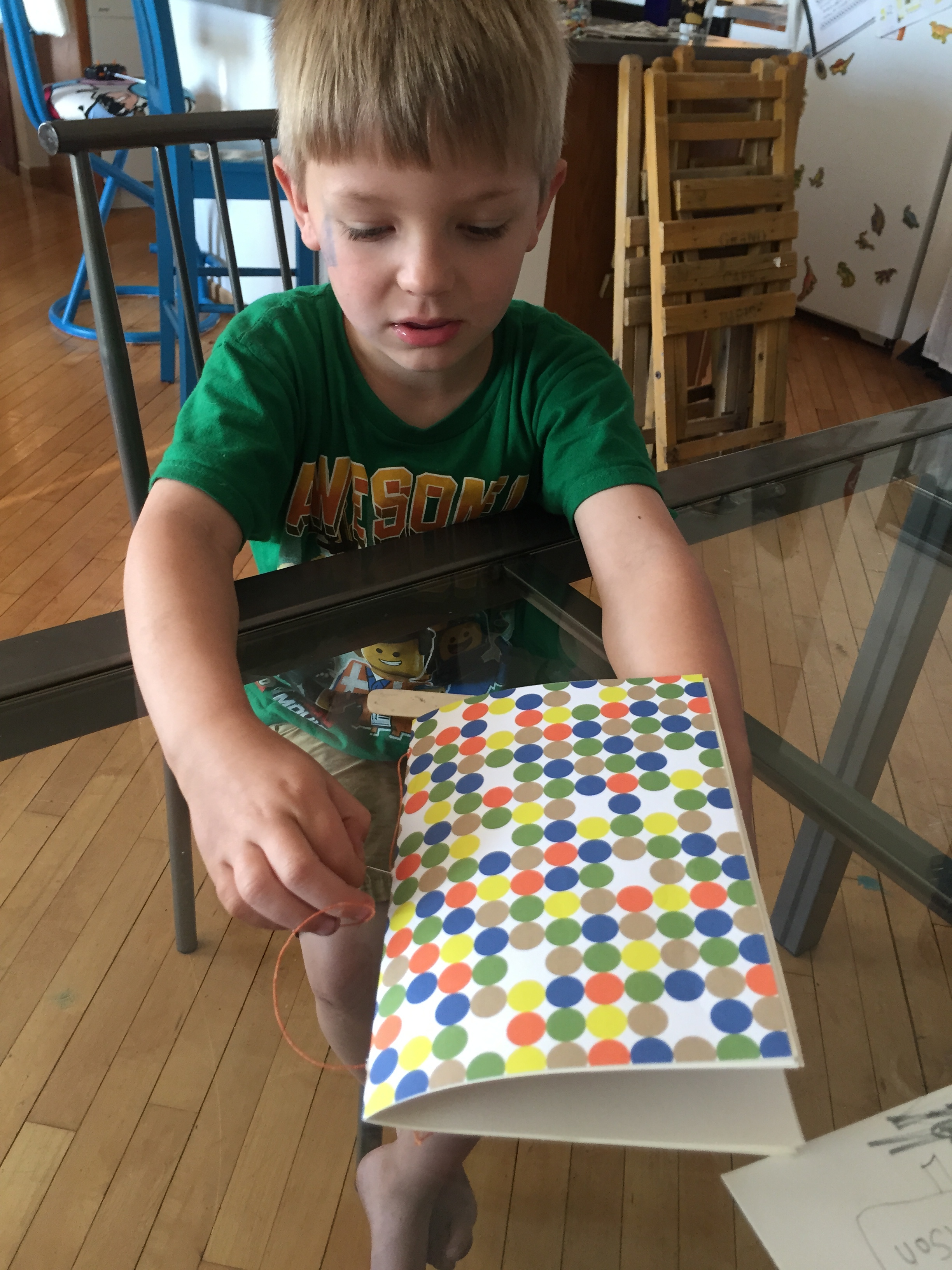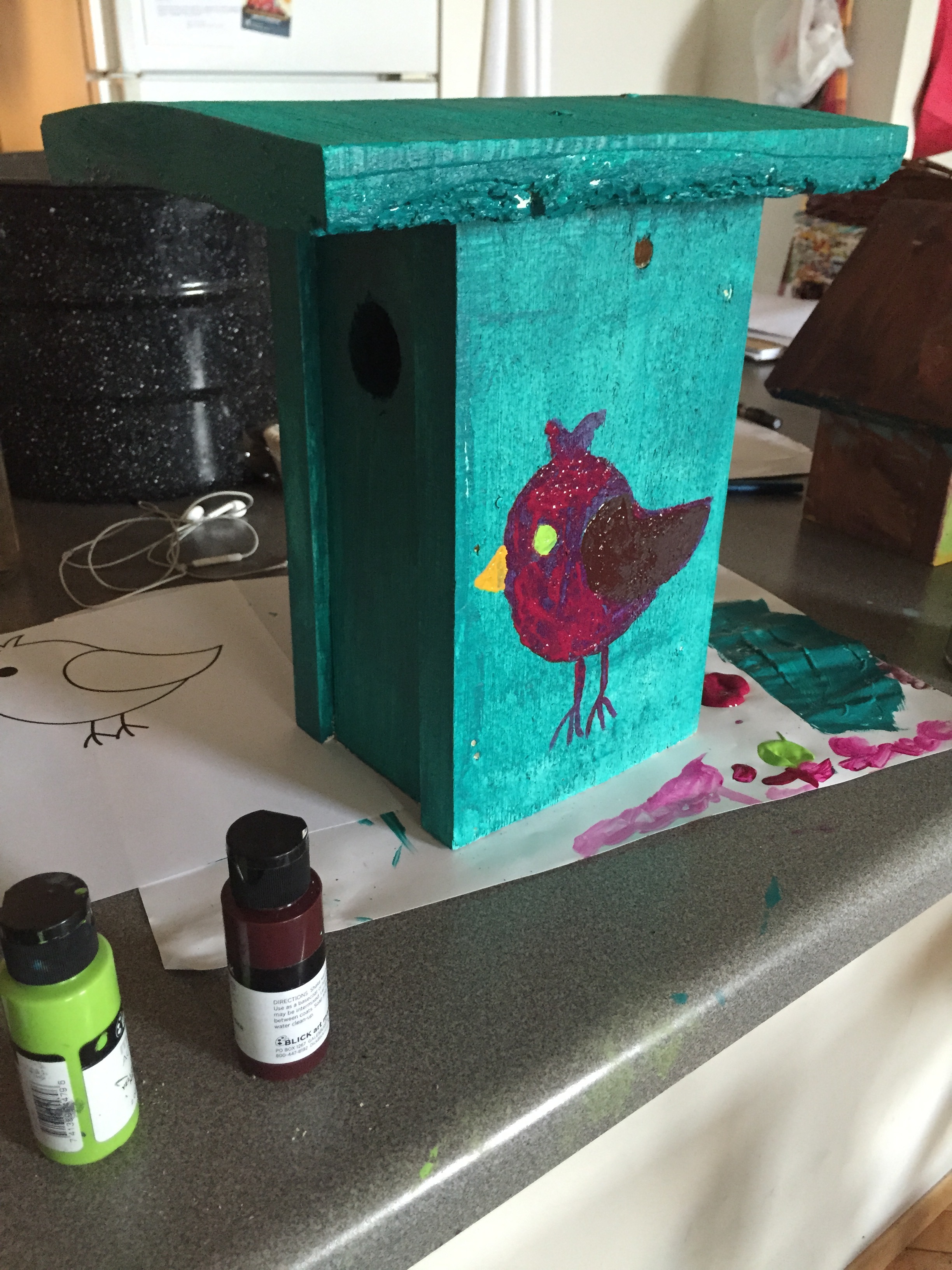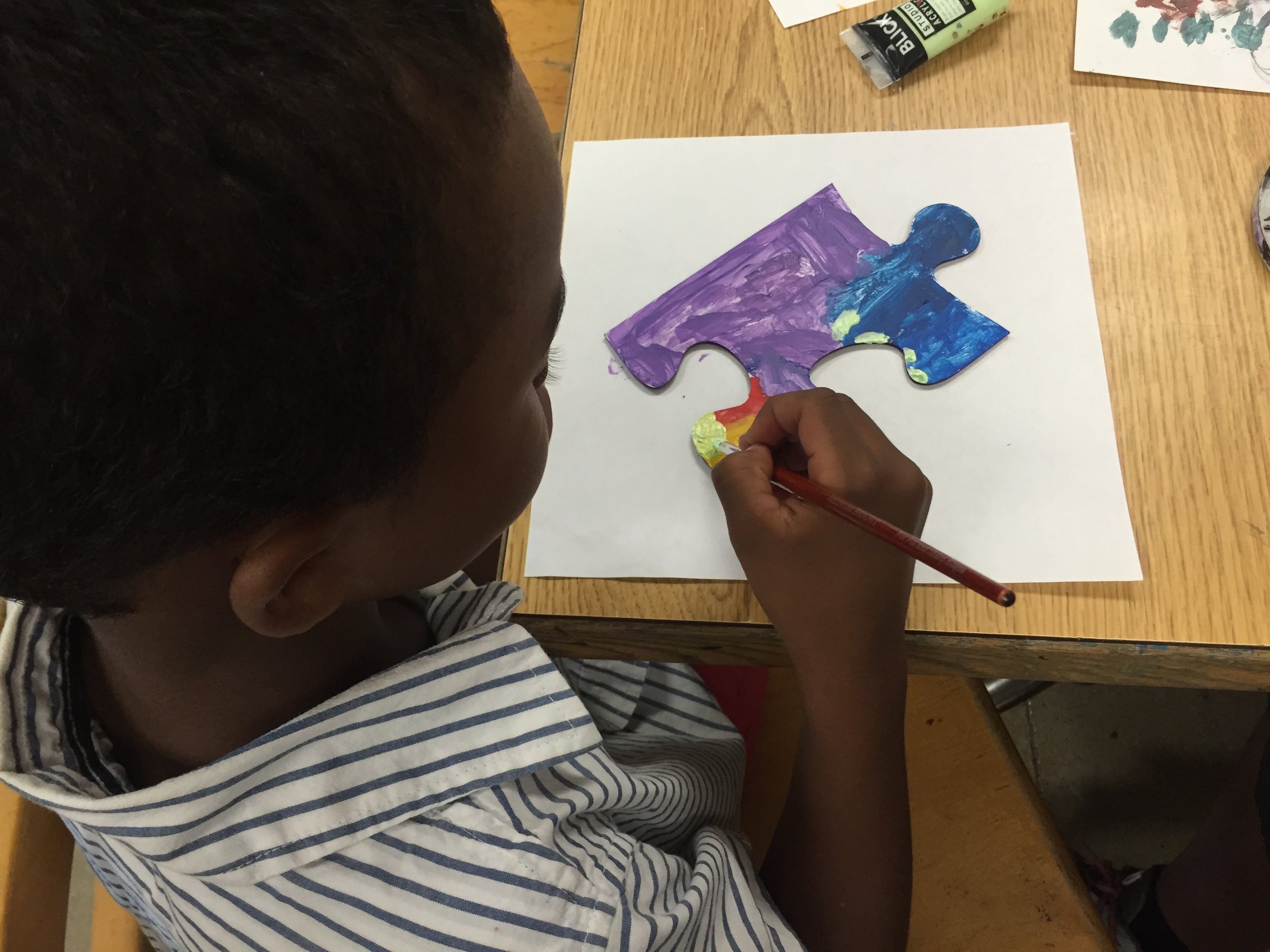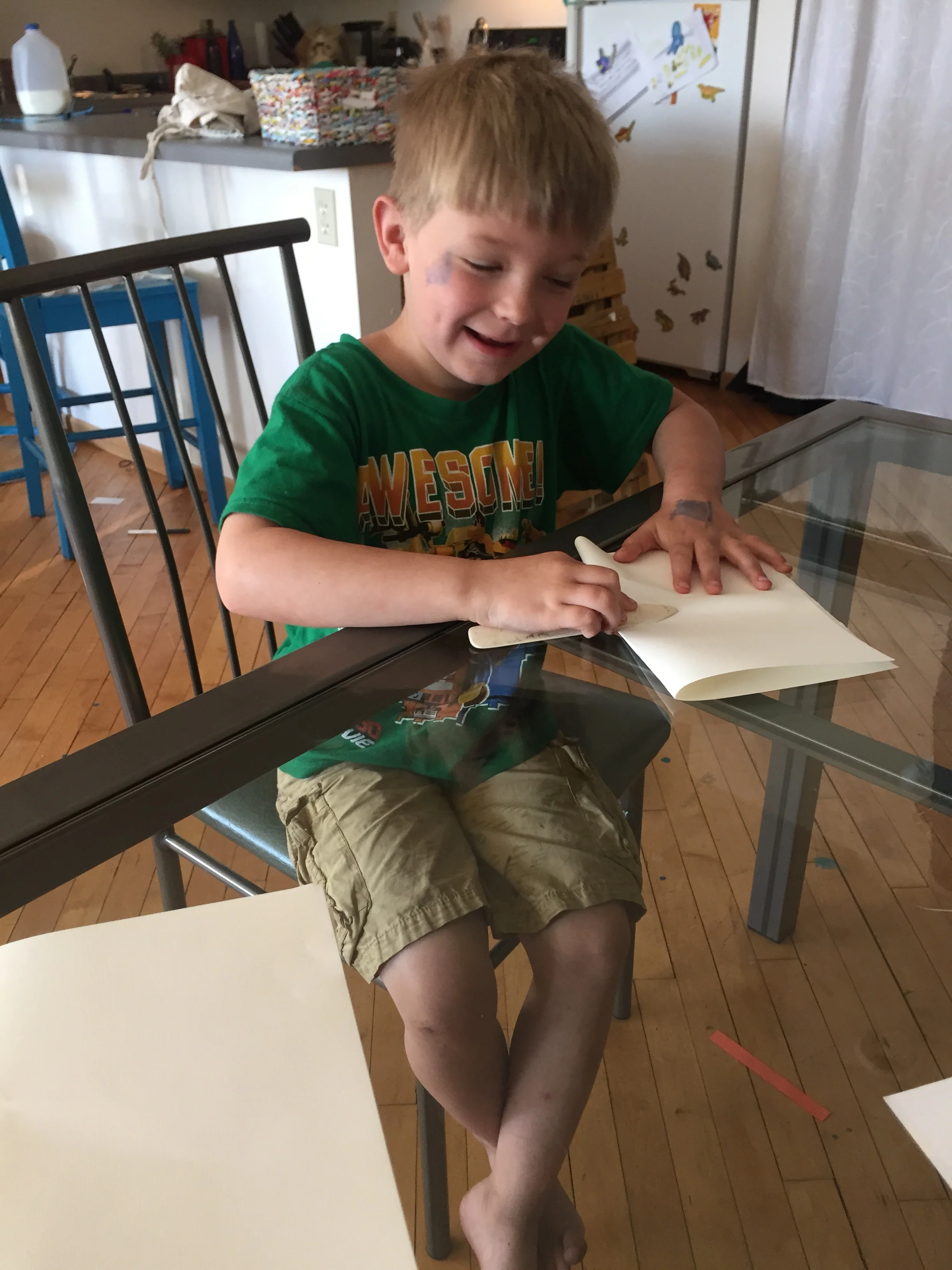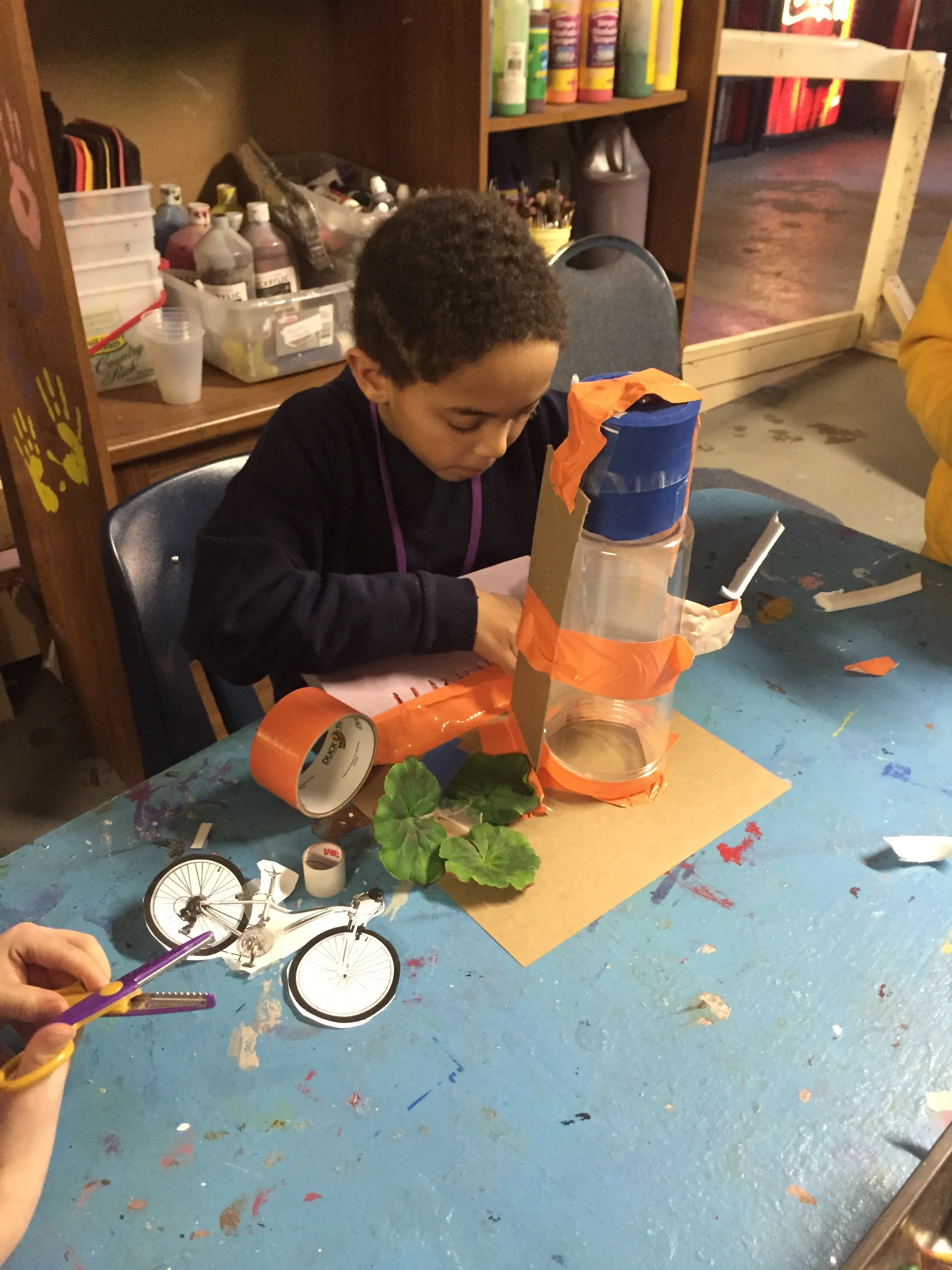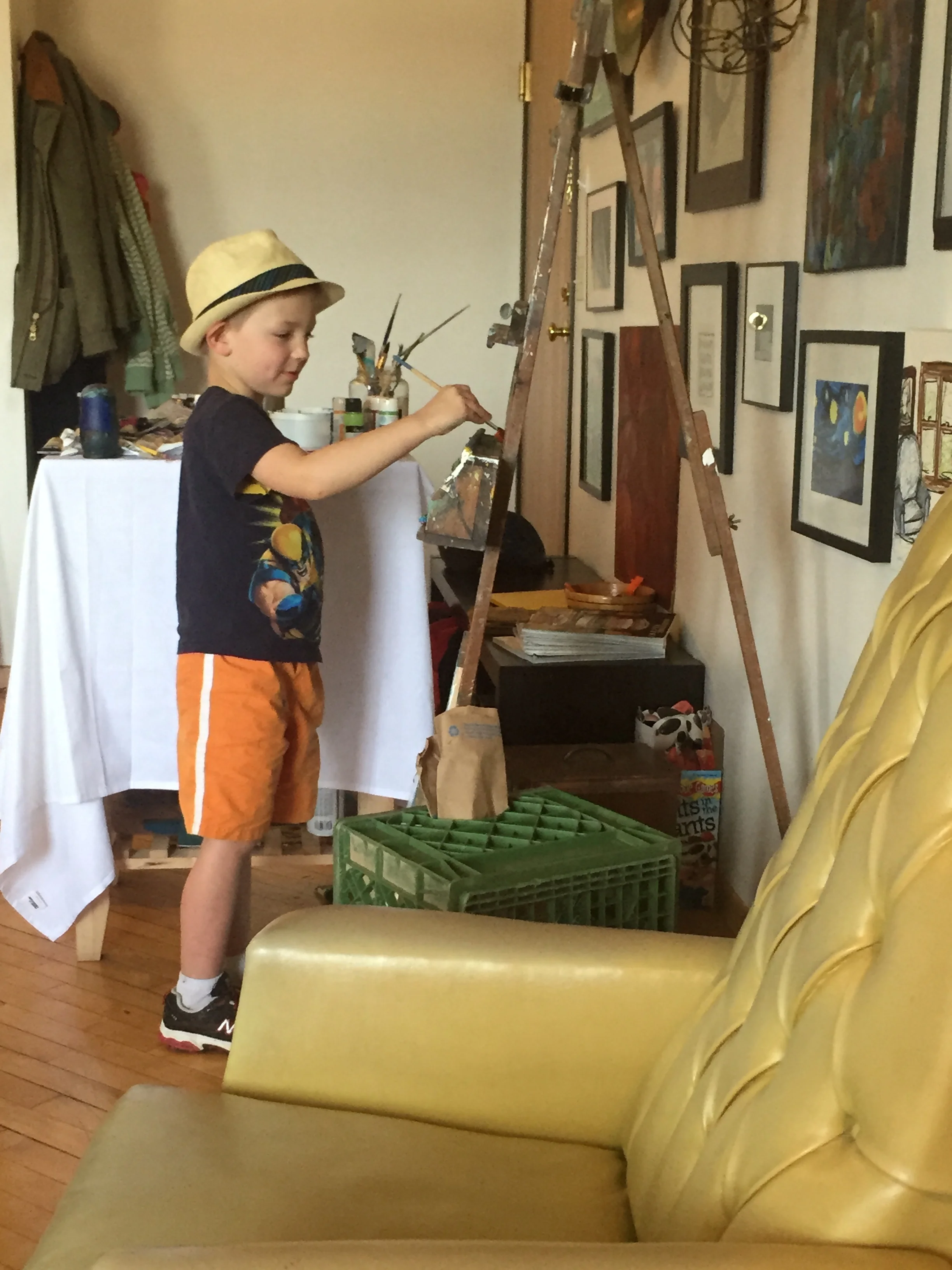My Jackson making a journal. He even sewed it with thread, instead of yarn. He was 6 at the time.
I know it's bold and audacious to say this, but I believe that any family can afford to raise an artist.
The reason I see this as being a bold assumption is because I should not assume anyone's money situation... because, frankly, that is super rude. I work with kids that are below the poverty line, and some are even homeless, and I know that it is delicate territory to act like I'm not considering them. While I think of them all the time, I see that there's a gap of understanding for people to raise an artist... regardless of their economic status.
I have three kids and all are involved in various activities: basketball, hockey, wrestling, band (and 3-4 different types of band), singing, theater, and art. I pay part of these activities (their dad pays the other part), so I'm fully aware of how much we pay to have a 'well-rounded child' with hopes that they will become a cool human after they leave the house. I am not well to do, at all, so I often have to call the theater company or art center to see if they have some scholarship opportunities. I would do the same for the sports, but my ex-husband wouldn't have it due to pride issues.
At the same time, I have a china hutch in my home, filled with paper, art supplies and unfinished art projects. This is second nature for me to have good supplies for my kids, so they can dive in when they'd like, in an unstructured art making extravaganza! I don't need to help them much, nor do I have to get them dressed and out the door in time for practice. They can just do it...
I am their coach, with 20+ years experience as an artist, but I know that this time is not really a time for me to show them a step-by-step project. I would if it were a project where craftsmanship is important (like book binding), but with drawing and painting, I'm less concerned until they get to a point that they need feedback. I may compliment their progress, but I may still help them improve what they are doing... and I definitely will say, "try again, we have plenty of paper," if they fall short of their vision.
You may say that this is because I'm an artist and teaching artist for hundreds of kids every year, but I say to that... "yes, you're right."
But I would like to share a few tips, on how to raise an artist on almost any budget:
Fancy art supplies? Naw... But his ideas are just proliferating as he works! The thing about this, is that he doesn't have to keep it... If he knows he can do it again, he'll be cool with letting it go, and doing again in the future. Take a picture, and recycle it!
- Allow for a designated place to make a mess. I have a dining room table that cleans up really nice when needed, but really doesn't get much use otherwise. I don't care if it gets paint on it, because I have paint on everything anyway. If you don't have that luxury (if you call it that), then find a place where your kids can jump into a project and possibly (gasp!) not clean it up until it's done. A basement, garage, shed, a corner of their room, the closet... whatever. Carpet is a bad idea in these spaces, because you don't want your kid to be a master of hiding paint spills in carpet (like me). Furnish the space with garage sale finds, or old furniture. Ask your kids what surfaces they would want to work on, and go find it for super cheap somewhere. (oh, and don't forget good lighting... that's huge!)
- Buy the best materials you can find, if you can swing it. Don't buy the cheap stuff, especially when it comes to the following: Colored pencils, pencils, pencil sharpeners, acrylic paint, tempera paint, watercolors... okay, I just realized the list could go on... and on. My point is that buy less for more instead of more for less. Your kid will get discouraged by the crappiness of the materials, because they have a bunch of fillers inside, are made of bad materials that deteriorate, or have bad outcomes when they are trying to create. Trust me when I say that I have tried to go cheap, but all it ends up doing is filling a spot on my supply shelf ... of yet another something I don't use. It's like junk food of art supplies... just empty calories and crappy results.
- When buying the nice stuff, consider getting discounted stuff through coupons at your local craft store, Amazon, and, a bit more morbid: auctions or sales of deceased artists (seriously, I've scored amazing supplies, that don't go bad, from dead artists.) I also give some of my unused stuff to emerging artists, cuz I'm nice, so let your kids become friends with artists.... they may get some free stuff, as well as advice.
- Don't feel like you need to keep everything or say everything is "good." The point of being an artist (of any type) is to be prolific and grow. Artists don't score shots that people are keeping score of, until 30-40 years into our career. Yet that doesn't mean that we aren't trying to improve constantly. Ask artists how they would talk through an art piece, and maybe you'd get some ideas of how to work with your kid and their work. Create a portfolio to store really good pieces, and find a way to date their progress. That is probably better than framing it and saying, "that's the best piece I ever saw you do..." because that's going to have a reverse affect on your child. They may stop there as having won the fight. You don't want that.
- Find your local artists, and ask if they will mentor your child in any way. If a child is capable of hanging out with me, while I work in my studio, I wouldn't mind having the company. But that's just me. Coordinating a class, on the other hand, takes ample planning and materials, so it won't likely be free. Be open to the possibilities, and respect the artist for their knowledge and time. I say that because I've been guilty of not paying my artist friends who take my kids under their wings for a project. I should at least find a way to repay them for their time.
- Engage with the local art center, music center, dance instructor, or craft fairs. If you engage and participate in the planning of their programs, you can see what is behind the scenes of free or fee'd events. You'll learn that there is a value, because there are artists getting paid, organizations getting grants (therefore staff getting paid), and venues getting paid. While this aspect of "who is getting paid" seems trivial, it's actually helpful when raising a young artist. Therefore, if they want to get into the arts, they can be encouraged to pursue their interest without assuming they are going to be poor. It's still a business... and a job.... and worth pursuing.
I could go on, but you get the point. I am just as annoyed with hearing about how Picasso's piece went for $4M, as I am about how a football player is getting paid. I don't care. To be honest, we can get more out of our lives if we don't worry so much about these types of successes. I think that your little artist could be happy if they are allowed the space to create without concern about their future. Let them be in the moment, and let them be prolific. That's the only way to get good.

